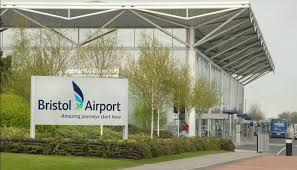EasyJet, the largest operatorat Bristol Airport, has grounded its entire fleet of aircraft for at least two months – leaving the airport at a near-standstill.
The decision – coming less than two weeks after the low-cost airline announced it was drastically reducing its operations – is the latest in a series of evermore drastic measures by the aviation industry in response to the coronavirus pandemic. 
EasyJet it needed to take the action due to “unprecedented travel restrictions” imposed by governments in a bid to halt the spread of the virus.
The airline has 17 aircraft based at Bristol serving 72 destinations – more than half the airport’s total – and operates around 770 flights a week from Bristol in the peak summer period.
It employs nearly 700 people at the airport, including cockpit crew and cabin crew.
Bristol Airport is the easyJet’s largest hub outside London and the airline has enjoyed major growth over recent years, adding new summer and winter destinations, increasing frequency on its most popular routes such as Paris and Belfast and bringing in new, larger aircraft to meet demand.
Its decision to stop flying completely is a serious blow to Bristol Airport, which has seen almost all its services cancelled over the past week as airlines stop flights in the face of a major fall off in passenger numbers.
According to the airport’s website just one departure and one arrival are scheduled today – both Dublin flights operated by easyJet rival Ryanair this evening. 
One other flight, operated by Dutch airline KLM from Amsterdam, was cancelled. KLM previously operated four daily flights to Amsterdam from Bristol – one of the airport’s most popular routes as it connects with long-haul services across the globe.
EasyJet today said it could not give a firm date on when flights would restart. Some 4,000 of its 9,000 UK staff will be furloughed for two months from Wednesday. They will be paid 80% of their salaries through the government’s job retention scheme.
The airline, which a total of 331 aircraft, operates just over 1,050 routes and serves 159 airports.
It has been busy over the past two weeks operating 650 repatriation flights, the last of which ended yesterday.
EasyJet said grounding its fleet removed “significant cost”.
William Ryder, an equity analyst at Bristol-based finance and stockbroking firm Hargreaves Lansdown, said easyJet could be in “real trouble” if coronavirus-linked disruption is prolonged of if the economy does not return to normal in the short term.
He said: “After keeping some planes in the air to help rescue stranded tourists, easyJet has now grounded the entire fleet. Of course, this means virtually no revenue is coming in, but it also removes a massive source of costs.
“The government’s scheme to pay 80% of the wages of furloughed workers has lifted a massive weight from easyJet’s shoulders and helped strike a deal with Unite the union.
“EasyJet isn’t flying any planes and most of its staff have been furloughed, so management will have a reasonable idea of what costs will be each week from here on out. Unfortunately, investors don’t have this information so it’s impossible to accurately assess easyJet’s prospects.
“We think the group has enough liquidity to manage a short suspension of European air travel, but if the disruption proves prolonged or the recovery is sluggish easyJet could be in real trouble.”














